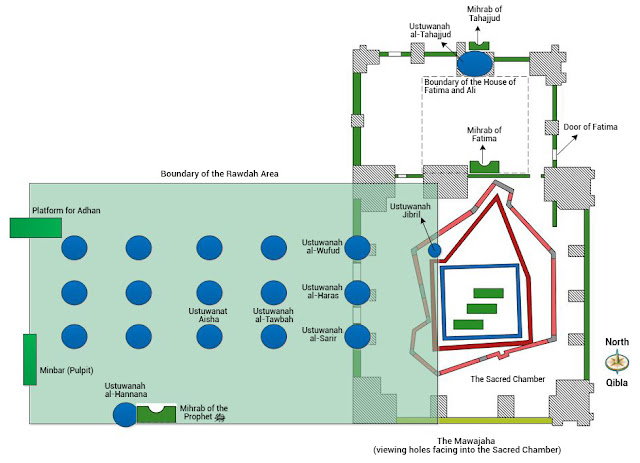Islamic Sleep Cycle
Managing sleep according to Islamic ideology is deeply connected with maintaining physical health, spiritual discipline, and productivity for worship. Islam gives a balanced, natural, and practical framework for rest and wakefulness. Here’s a comprehensive explanation based on Qur’an, Sunnah, and Islamic scholars:
🌙 1. The Purpose of Sleep in Islam
Allah says in the Qur’an:
“And We made your sleep a means for rest.”
(Surah An-Naba 78:9)
➡ Sleep is seen as a ni‘mah (blessing) — a mercy from Allah to rejuvenate the body and mind so one can continue fulfilling spiritual and worldly responsibilities.
🕓 2. Recommended Sleep Schedule (According to Sunnah)
The Prophet ﷺ maintained a balanced sleep pattern that synchronized with natural circadian rhythms:
a. Sleep Early at Night
The Prophet ﷺ disliked engaging in unnecessary talk after ‘Isha prayer.
He encouraged sleeping early to wake up refreshed for Tahajjud or Fajr.
Hadith:
“The Prophet ﷺ used to dislike sleeping before ‘Isha and talking after it.”
(Bukhari & Muslim)
💡 Practical Tip:
Try to sleep within 1 hour after ‘Isha to ensure 6–8 hours of total rest.
b. Wake Up Early
The Prophet ﷺ prayed Tahajjud (pre-dawn voluntary prayer) and Fajr early.
He made du‘a for barakah (blessing) in the early hours:
“O Allah, bless my Ummah in their early mornings.”
(Tirmidhi)
💡 Practical Tip:
Wake up before Fajr for 15–30 minutes of quiet reflection or worship — it brings spiritual peace and mental clarity.
c. Qailulah (Midday Nap)
The Prophet ﷺ encouraged a short nap (Qailulah) before Dhuhr prayer.
“Take a nap, for the devils do not take a nap.”
(Tabarani)
💡 Ideal Duration:
10–30 minutes — not deep sleep. It refreshes energy and helps in waking up early at night for Tahajjud.
🛏 3. Sunnah Etiquette of Sleeping
Islam even gives specific manners (Adab) for sleeping:
Perform Wudu before sleep.
(Bukhari & Muslim)
Sleep on your right side, facing Qiblah if possible.
(Bukhari)
Recite:
Ayat-ul-Kursi (Surah Baqarah 2:255)
Surah Al-Ikhlas, Al-Falaq, and An-Nas
Last two verses of Surah Al-Baqarah
Say:
“Bismika Allahumma amutu wa ahya”
(“In Your name, O Allah, I live and die.”)
Avoid sleeping on stomach — it’s discouraged in hadith.
(Abu Dawud)
🌅 4. Avoiding Oversleeping
Islam discourages excessive or lazy sleeping:
“The most beloved of deeds to Allah are those done regularly, even if they are few.”
(Bukhari & Muslim)
Too much sleep wastes time and dulls spiritual alertness — moderation is key.
💡 Balanced Sleep Duration:
6–8 hours (including short nap).
💭 5. Spiritual Dimension
Sleep is also a reminder of death:
“It is He who takes your souls by night and knows what you have committed by day...”
(Surah Al-An‘am 6:60)
Thus, a believer goes to sleep in remembrance of Allah, seeking forgiveness — and wakes up thankful for a new life.
“All praise is for Allah who gave us life after causing us to die, and to Him is the resurrection.”
(Bukhari)
🧭 6. Summary – The Ideal Islamic Sleep Routine
Time
Activity
Islamic Guidance
After Isha
Sleep early
Avoid talking late
Before Fajr
Wake for Tahajjud
Seek barakah
Fajr–Sunrise
Stay awake
Engage in dhikr or work
Midday
Qailulah nap
10–30 min rest
Night
Regular sleep
6–8 hrs total








.jpeg)